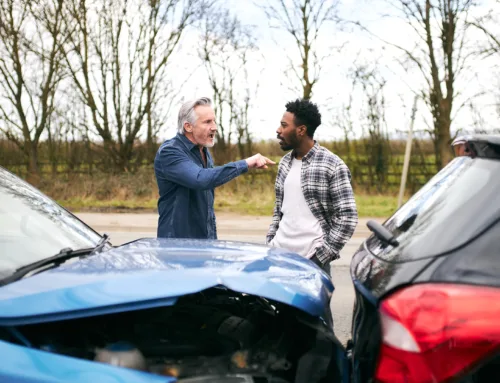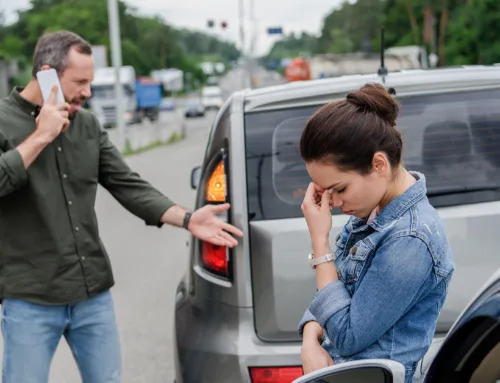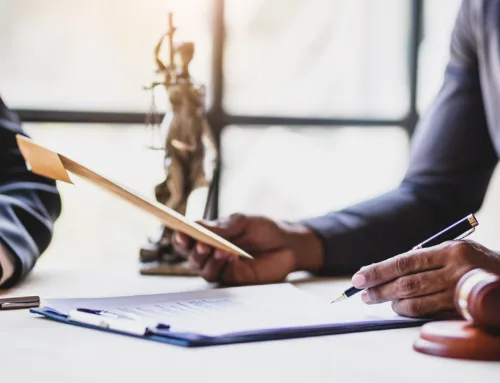There’s nothing like the feeling of riding a motorcycle and hitting the open road. You’ve got the wind against your skin and the road stretching out in front of you. But let’s not forget, with all that freedom comes a big responsibility—your own personal safety.
As a motorcyclist, you are more vulnerable to the weather and potential dangers on the road than those in cars or trucks. Knowing these dangers can help you ride more carefully and confidently.
Let’s explore six specific hazards, starting with how weather conditions can impact your ride.
1. Weather Conditions
When you ride a motorcycle, you have to be ready for any weather conditions. The weather can change your ride in many ways. Rain can make the roads slick, which can lower your bike’s traction and increase your chances of sliding. Fog can make it hard to see anything, like other vehicles, signals, or the road. Snow and ice can make your bike very hard to handle and steer.
Here are some basic tips for navigating adverse weather:
- Always check the weather forecast before heading out.
- Consider carrying rain gear and anti-fog visor sprays.
- Reduce your speed and increase the distance between you and the vehicle in front of you.
2. Road Surface Conditions
When you ride a motorcycle, you have to watch out for the road. The road can have many problems that can make your ride dangerous. Potholes can shake you and make you lose control, and loose gravel can make your bike skid. Wet and oily surfaces make the road more slippery and can lead to crashes. Here are some tips for staying safe in poor road conditions.
- Be vigilant and keep an eye out for changes in the road surface.
- Use caution when riding over unfamiliar or visibly damaged roads.
- Slow down when you encounter wet or oily patches.
3. Traffic Hazards
Traffic can be a motorcyclist’s worst nightmare. Aggressive drivers who don’t respect your space on the road, tailgating, and sudden lane changes can put you at great risk. Here are some tips for staying safe in traffic.
- Always keep a safe distance from other vehicles.
- Be visible. Use your headlights and wear bright clothing.
- Avoid riding in the blind spots of other vehicles.
4. Intersections and Traffic Signals
When you ride a motorcycle, you have to be careful at intersections. There are many things that can go wrong. You have to deal with changing lights, pedestrians, and potentially inconsiderate or unsafe drivers.Considering the unique challenges of intersections, it’s important to understand how to navigate them safely.
- Always come to a complete stop at stop signs and red lights.
- Look both ways before proceeding, even if you have the right-of-way.
- Use your turn signals well in advance to alert other drivers of your intentions.
5. Wildlife and Pedestrians
You’re probably not the only one on the road. Crashing into wildlife or even a deer can be disastrous on a motorcycle. Likewise, pedestrians may walk onto the road unexpectedly. Here are some tips for being aware and prepared:
- Scan the sides of the road for any signs of wildlife, especially in rural areas.
- Slow down in populated zones where pedestrians are likely to be present.
- Always be prepared to stop or swerve safely to avoid a collision.
6. Mechanical Failures
Mechanical problems can be fatal for motorcyclists. A tire that bursts or a brake that fails can put you in grave danger. Here are some preventative maintenance tips:
- Regularly inspect your motorcycle’s tires, brakes, and lights.
- Stick to the maintenance schedule recommended by your bike’s manufacturer.
- If you notice any issues, address them immediately before they become major problems.
Get Help from a Motorcycle Accident Lawyer in Georgia
Riding a motorcycle can be fun and exciting, but it can also be dangerous. You have to deal with many risks on the road, such as bad weather, poor roads, careless drivers, and even animals. You have to be ready for anything.
No matter how careful you are, accidents can still occur and cause injury. When that happens, you need a caring and experienced motorcycle accident lawyer in Georgia. Schedule a free consultation today. We’ll help you navigate the legal system and get the compensation you deserve.


